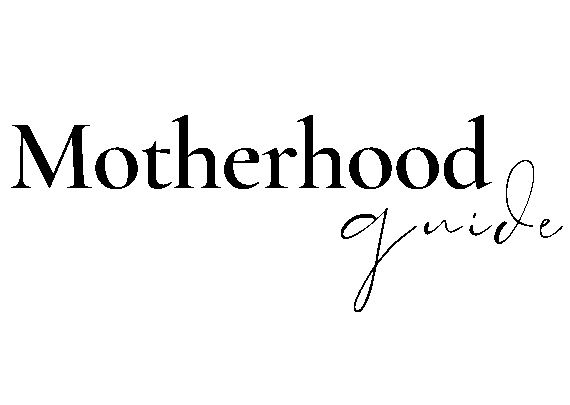You know about digital overload, right?
So it started as one of those fun, spontaneous evenings. My fiancé and I met a couple at a bar: friendly, interesting, easy to talk to. We had one of those conversations that just flow: travel, work, life. You know, the kind that makes you think, “Finally, people who get it.”
The next day, they invited us for a glass of white. We went and halfway through the night, the guy started asking the exact same questions he’d asked the night before. Word for word.
Maybe he had a few too many at the bar, maybe the music was loud. It happens, I though to myself.
But then we met them again, third night in a row, and guess what? Same. Exact. Questions!
It didn’t feel like déjà vu anymore. It felt like he wasn’t actually listening, just… performing a social script.
A few weeks later, I met a dear friend of mine. Totally different background, totally different vibe but something very similar happened again. She couldn’t stay present in a conversation. Words just slipped through her. I’d share something funny, important, or emotional and the next day she’d ask me about it again as if we never spoke about it.
At first, it was confusing. Then a little alarming. Is this the new us? I started thinking. and why does it happen quite often?
Here’s what I’ve learned about the digital overload so far:
1. Social Scripting: Conversations Without Connection
We’re not listening, we’re performing. We mastered the communication art to the point that we don’t communicate anymore. We know how to smile, nod, and ask questions that sound engaged, but we’re not actually listening. We say the right things to seem kind, clever, or curious, but often without our own presence behind them.
This is what psychologists call “social scripting”, repeating familiar conversation patterns because it’s easier than thinking, feeling, or connecting in real time.
We trained ourselves to keep things “light,” “pleasant,” and “non-confrontational.” We seek for good vibes with everyone, because we’ve heard that people will hear nothing what we said, they will only remember how we did it. So we roll over and over same empty but nice feeling sentences with each other and trying to stay in vibe. We’re turning into some pseudo-polite talkers.
But you know what really impresses others? It’s not just you asking: “Wow, you like traveling, tell me about your favorite place.” It’s remembering that you already asked the exact same thing yesterday.
2. We Live In An Age Of Information Obesity
The human brain was designed to handle roughly one focused stream of information at a time: a single story, a conversation, a problem. ONE!
Today, the average person consumes around 34 gigabytes of information per day, or roughly 100,000 words flashing past your eyes and ears every single day.
So when you tell someone a meaningful story, their brain may simply not have room to store it. It’s like my phone – the memory is always almost full.
The worst part here is that people aren’t even aware it’s happening to them. Their brains are just quietly deleting everything that doesn’t extremely trigger their emotions. That’s why we can remember the names of the Menendez brothers but forget the name of our best friend’s newborn.
3. We’re Not Really Listening, We’re Just Waiting to Reply
Communication today is less about connecting and more about responding. And doing it fast.
Social media and constant digital flow have rewired us to expect instant input/output. The average adult’s attention span has shrunk from 2½ minutes to under 47 seconds in just twenty years.
If the conversation is not about us, we registering it as background noise not as memory material. We’re always halfway into our next thought, reply, or new topic.
4. Stress, Hormones, and Lack of Sleep Are Depleting Our Memory
Chronic stress floods your system with cortisol, which blocks the hippocampus – your memory disk. Sleep deficit stops your brain from storing short-term memories. And for women 35+, hormonal fluctuations can cause “menopause brain fog” that mimics early dementia, but is actually neurochemical imbalance.
Harvard research found that one night of poor sleep reduces memory consolidation by up to 30%. We’re exhausted, distracted, and trying to network on top of it.
We fill every moment with something: a podcast while cooking, music while working, scrolling while half-watching a show. We’re constantly stimulating our senses but rarely restoring them. In other words we’re trying to run full-speed on an empty battery, and proudly calling it productivity.
Every ping, every phone vibration, every playlist, every tab left open is a trigger. And triggers aren’t neutral, they drain focus, shorten attention, and scatter memory.
Here’s how you can prevent yourself from digital overload:
- Do one thing at a time. Multitasking is a myth, your brain just switches faster and remembers less.
- Leave white space in your day & encourage boredom, that’s where the focus grows. Protect your quiet time like you’d protect your child’s nap time.
- Consume with intention. Choose your music, content, and conversations like an allergic person chooses their food. Go jogging with no headphones, do workout with no music. Focus on one thing only – the brain-muscle connection.
- Sleep like it matters. Because it does, I’m sure you know this one.
- No screens while you eat. No screens while you poop. Ten minutes to do the essentials. Your brain will thank you.
- Teach yourself etiquette, not impression. What really works isn’t repeating someone’s name like a sales script – it’s making others feel interesting and heard
- Stop performing. Drop the social script and just show up as yourself. You know, authenticity is trending too, and guess what? Some people will remember you for it.
- Notice your numb moments. If you can’t remember a conversation, task, or feeling, your brain is signalling overload. Treat it.
We live in the loudest era in human history. So if someone, anyone, really listens, remembers, and connects, that’s luxury now. Not trending yet, but I feel it’s coming. Like the quiet luxury while wearing an Ami Paris sweater with the little red heart. Make sure you’ve got some storage when you meet someone who still has one. Not the sweater, the memory!












